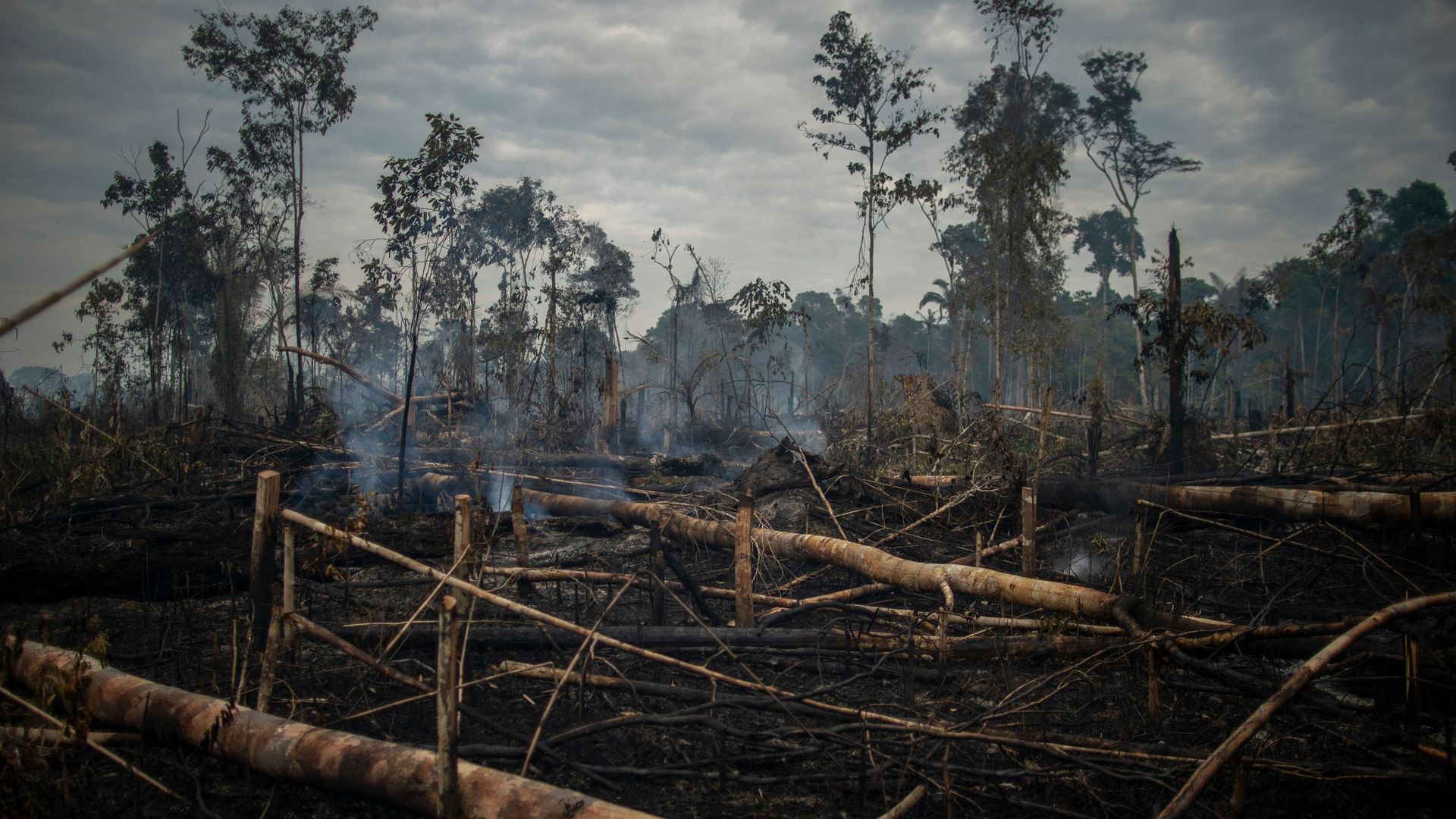Nov 18, 2021 - Energy & Climate
Amazon deforestation in Brazil surges to worst in 15 years
Add Axios as your preferred source to
see more of our stories on Google.

General view of a burnt area of the Amazonia rainforest in the surroundings of the city of Porto Velho, Rondonia state, Brazil, on September 15, 2021. Photo: Mauro Pimentel/AFP via Getty Images
